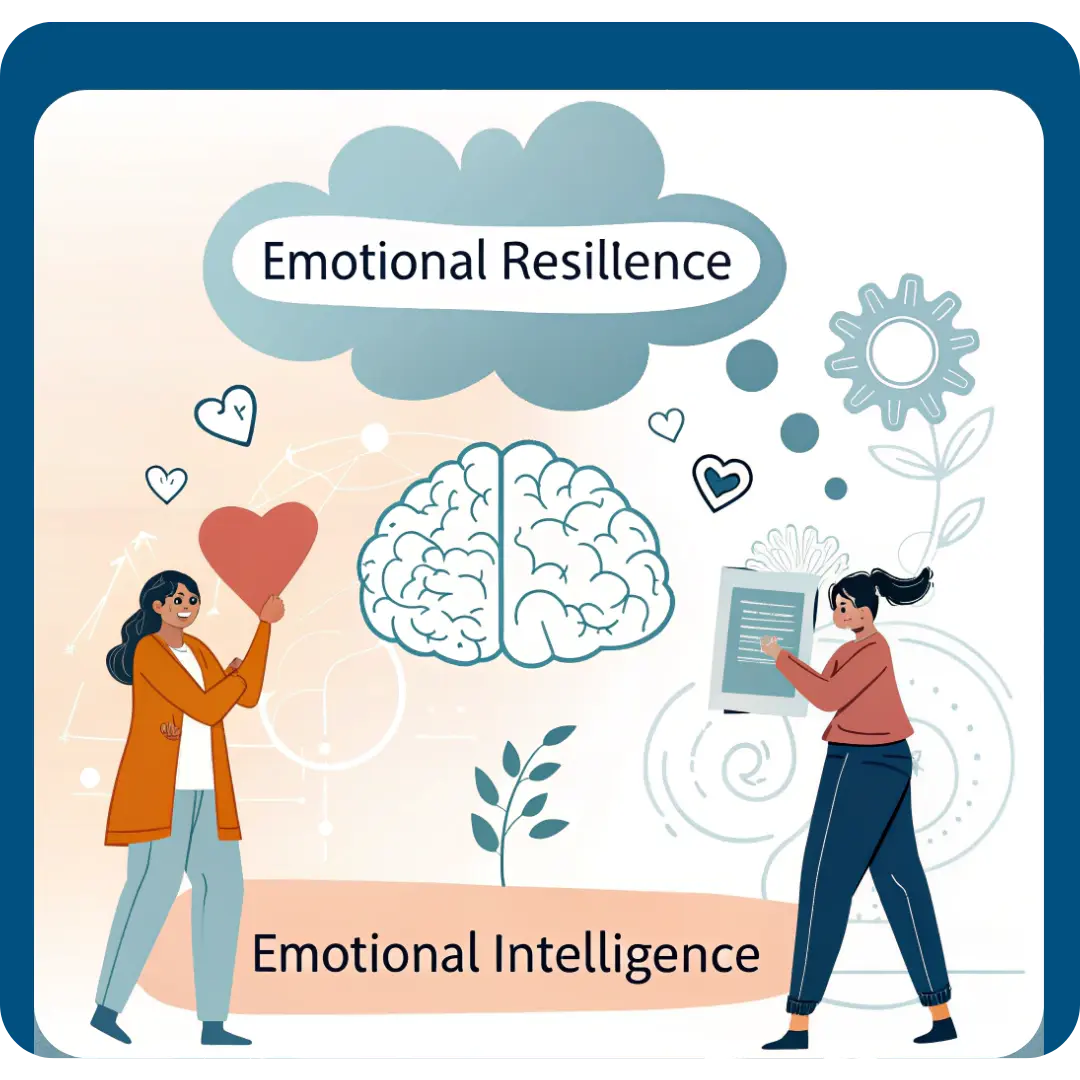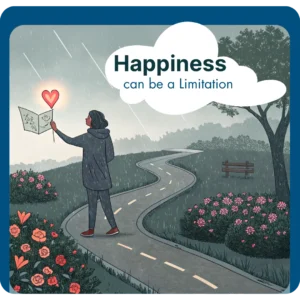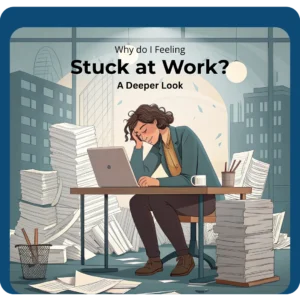Emotional Intelligence vs Emotional Resilience: What’s the Difference?
Table of Contents
Many millennial housewives who have left the workforce to care for their families often find themselves navigating complex emotional landscapes—balancing relationships, personal well-being, and self-identity. In this journey, two concepts often come up: Emotional Intelligence (EI) and Emotional Resilience (ER). While these terms are sometimes used interchangeably, they represent two distinct yet interconnected skills that can profoundly impact your mental well-being and overall quality of life.
This blog explores the key differences between emotional intelligence and emotional resilience, why they matter for women managing home and family life, and how to develop both for a more balanced, fulfilled life.
What is Emotional Intelligence (EI)?
Emotional Intelligence (EI) is the ability to recognize, understand, manage, and influence emotions—both in yourself and in others. It is about how well you handle emotional interactions and relationships. Many experts recommend emotional intelligence therapy to enhance these skills for personal and social growth.
🔍 According to psychologist Daniel Goleman, EI consists of five core components:
1️. Self-awareness – your emotions and how they affect your thoughts and behaviors.
2️. Self-regulation – Managing your emotions effectively and responding instead of reacting.
3️. Motivation – Using emotions to drive personal growth and goal achievement.
4️. Empathy – Recognizing and understanding the emotions of others.
5️. Social skills – Navigating social interactions with emotional awareness and communication.
These five aspects contribute to eq 2.0, the evolved model of emotional intelligence (eq i) that provides deeper insight into emotional and social competencies.
Imagine your child throws a tantrum while you’re already exhausted. Instead of reacting with frustration, emotional intelligence for women helps you pause, recognize your own emotions, and respond in a calm and constructive way.
What is Emotional Resilience (ER)?
Emotional Resilience (ER) is the ability to adapt to stress, adversity, and challenges without being overwhelmed. It determines how quickly you can recover from setbacks and maintain emotional balance.
🔍 Key characteristics of emotional resilience:
✔ Adaptability – Adjusting to changes without excessive stress.
✔ Optimism – Maintaining a positive outlook despite challenges.
✔ Self-confidence – Believing in your ability to handle difficulties.
✔ Emotional regulation – Managing stress and emotional upheavals effectively.
✔ Problem-solving skills – Finding solutions rather than being stuck in distress.
For many women, mastering ei eq (Emotional Intelligence and Emotional Quotient) is essential for strengthening emotional resilience.
You planned a relaxing evening, but unexpected guests arrive, and your child gets sick at the same time. Emotional resilience allows you to stay calm, prioritize what’s important, and manage the situation without feeling overwhelmed or losing your sense of self.
Key Differences Between Emotional Intelligence and Emotional Resilience
Feature | Emotional Intelligence (EI) | Emotional Resilience (ER) |
Definition | The ability to understand and manage emotions. | The ability to bounce back from difficulties. |
Focus | Awareness and control of emotions. | Strength in handling emotional challenges. |
Role in Daily Life | Helps improve communication, empathy, and relationships. | Helps manage stress, setbacks, and emotional overload. |
Application | Used in interpersonal interactions and emotional awareness. | Used in handling crises, changes, and uncertainty. |
Key Skill Set | Self-awareness, empathy, and relationship management. | Adaptability, stress management, and problem-solving. |
🌟 Think of EI as the ability to “read and manage emotions” and ER as the “ability to withstand emotional storms.”
Developing self-awareness and emotional intelligence plays a key role in managing both personal and social challenges. Similarly, strengthening social skills in emotional intelligence improves relationships and emotional resilience.
Why Do Millennial Housewives Need Both EI and ER?
Many millennial housewives experience identity shifts when transitioning from a career-driven life to full-time caregiving. This shift brings emotional challenges that require both emotional intelligence and emotional resilience to navigate effectively.
Why Does Emotional Intelligence Matter for Housewives?
✅ Helps communicate better with children, partners, and family members.
✅ Reduces conflicts and misunderstandings at home.
✅ Improves self-awareness and emotional intelligence so you don’t suppress emotions.
✅ Enhances social awareness and emotional intelligence when handling family responsibilities.
Why Does Emotional Resilience Matter for Housewives?
✅ Helps manage stress from household responsibilities.
✅ Prevents emotional burnout from caregiving roles.
✅ Helps bounce back from difficult days without frustration.
✅ Strengthens self-identity beyond being a mother or wife.
Mastering both emotional intelligence for women and emotional resilience ensures a healthy mental state and a balanced family life.
How to Build Emotional Intelligence (EI) as a Housewife?
1️ Practice Self-Awareness:
- Keep a journal to reflect on what triggers your emotions and how you react.
- Take 5 minutes daily to pause and check in with your feelings.
2️ Improve Self-Regulation:
- Use deep breathing techniques when feeling overwhelmed.
- Delay reactions—Take 10 seconds before responding to an argument.
3️ Enhance Empathy & Social Skills:
- Listen actively instead of immediately offering advice.
- Observe social awareness emotional intelligence cues in family interactions.
4️ Develop Emotional Communication:
- Instead of saying, “You never help me,” say, “I feel overwhelmed when I have no support.”
- Teach your children and partner how to express emotions healthily.
How to Build Emotional Resilience (ER) as a Housewife?
1️ . Shift Your Perspective on Challenges:
- Instead of seeing struggles as setbacks, view them as growth opportunities.
- Replace “Why is this happening to me?” with “What can I learn from this?”
2️ . Prioritize Self-Care Without Guilt:
- Schedule alone time to recharge.
- Engage in hobbies that bring you joy and fulfillment.
3️ . Strengthen Problem-Solving Skills:
- Ask yourself: “What’s one small thing I can do to improve this situation?”
- Learn to detach from problems rather than over-identifying with them.
4️ . Develop a Support System:
- Connect with other women who understand your journey.
- Have a trusted friend, therapist, or mentor for emotional intelligence therapy and guidance.
Final Thoughts: Mastering Both for a Balanced Life
Emotional intelligence helps you navigate daily emotions and relationships, while emotional resilience helps you stay strong in the face of adversity. Both are essential for housewives managing family life while maintaining personal fulfillment.
Which One Should You Develop First?
Start with emotional intelligence if you struggle with:
✅ Misunderstandings or conflicts at home.
✅ Expressing your emotions clearly.
Start with emotional resilience if you struggle with:
✅ Feeling emotionally drained or overwhelmed.
✅ Handling setbacks and uncertainties.
✨ By strengthening both, you can create a life of calm, clarity, and confidence!
💬 Which skill do you want to develop more—EI or ER? Drop a comment below!
#EmotionalIntelligence #EmotionalResilience #WomenWellBeing #HousewivesGrowth #SelfCareForWomen
——
Compiled and Written by
Sonali Mittra
FAQs
Being aware of your emotions and others’ emotions, and managing them well.
The ability to bounce back from stress, setbacks or difficult times.
Emotional intelligence is about understanding emotions; resilience is about handling pressure and recovering quickly.
Yes — you might understand emotions well, but still find it hard to recover when things go wrong.
Absolutely — through practice, support, mindset shifts, self-care and experience.
It helps you communicate better, understand others, respond calmly, and avoid conflicts.
Yes — resilient people recover from setbacks faster and stay motivated under pressure.
Practice self-reflection, active listening, emotional labeling, and empathy.
Keep routines, nurture social support, accept what you can’t control, self-care and mindset work.
No — they work together. EQ helps you understand and manage feelings; resilience helps you bounce back when things go wrong.





This article offers a clear and insightful comparison between emotional intelligence vs emotional resilience. Understanding that emotional intelligence involves recognizing and managing our own emotions, while emotional resilience focuses on our capacity to recover from setbacks, has been eye-opening. Incorporating both into daily life can truly enhance personal growth and well-being.
This was such an insightful read! I always thought emotional intelligence and emotional resilience were the same, but your breakdown made it so much clearer. The way you explained how emotional resilience helps in bouncing back from setbacks really resonated with me. I’ve been working on strengthening my emotional resilience, and your tips are super helpful. Looking forward to more content like this!
This was a thoughtful read. I’ve always thought about resilience as ‘being strong under pressure’, but framing it alongside emotional intelligence helped me see how both skills complement each other. Nice work — I’ll definitely be more mindful of growing both
Really interesting comparison between emotional intelligence and resilience. I particularly liked how you explained that emotional intelligence helps us read others, while resilience gives us inner strength to bounce back. Thanks for this clarity — gave me a fresh perspective
Such a thoughtful comparison between emotional intelligence and emotional resilience! I liked how the post includes steps to improve both. Definitely bookmarking this for daily practice
Thanks for sharing. I read many of your blog posts, cool, your blog is very good.